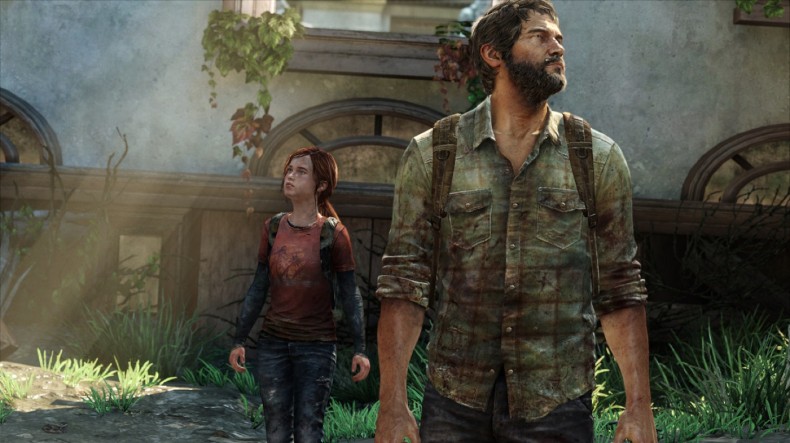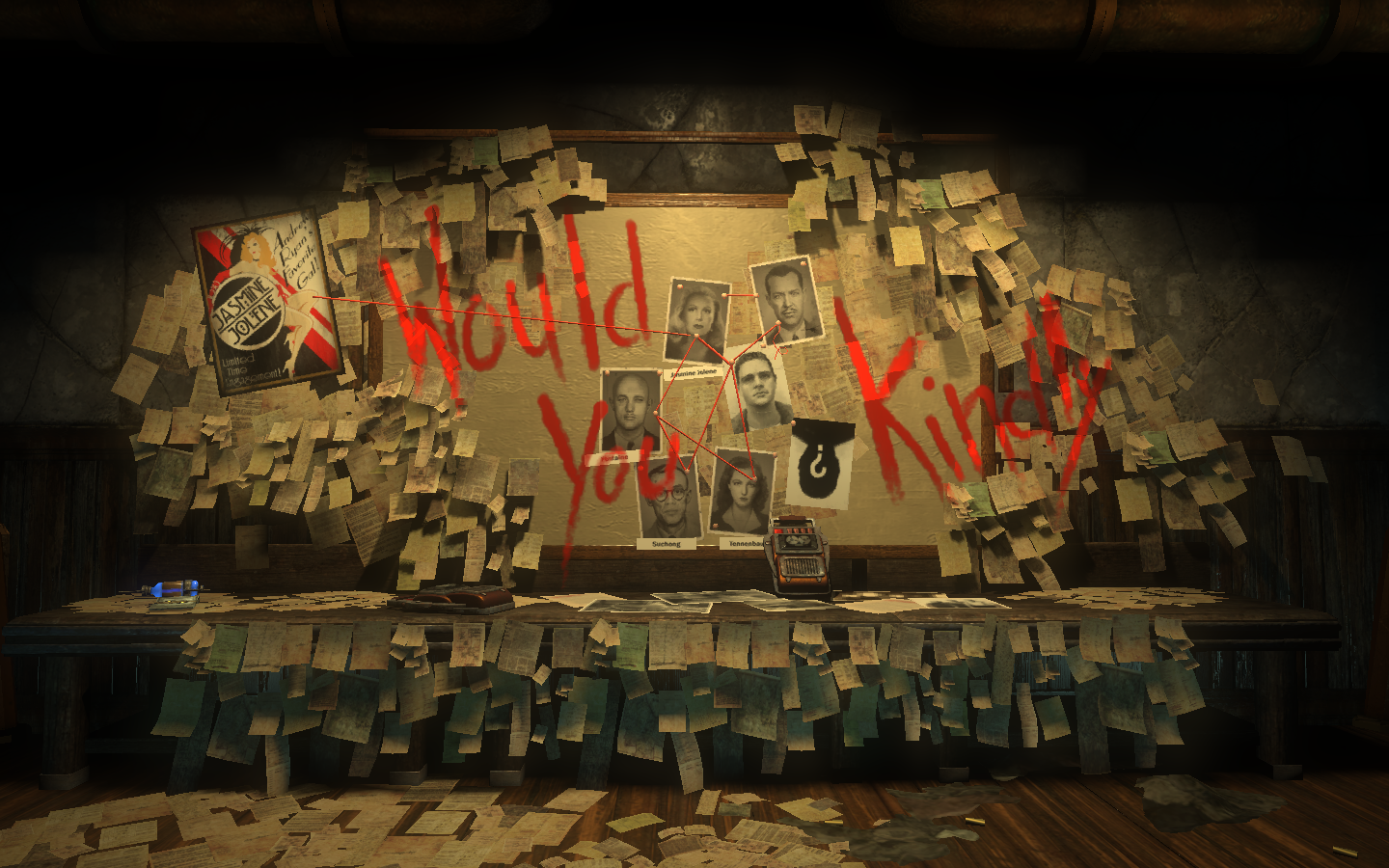Will Games Ever Get The Respect They Deserve?


It’s safe to say that if BioShock was a book or a film it could be acknowledged as a landmark for whichever medium it was associated with. But as a game the same people that would be praising the book or film would call it a toy.
In early November I was unloading a truck in the back of the Wal-mart where I am employed and found a box labeled “PS4 Hardware” coming down the line. I excitedly held up all my co-workers as I opened up the box and took pictures of the contents to send to a few of my friends.
After some teasing from one of my co-workers who lovingly told me that I clearly had no life, another one, who will be from here on out known as Tobyn, brought up that he didn’t see games ever really being a meaningful medium in the way of books or film.
The conversation that followed went on for a good hour or so. The way he described games sounded a lot like a person who was basing his viewpoints on games like Call of Duty and Mario. Not to talk down to him or those series, they’re just not necessarily a strong example of how far games have come as a whole being strictly games as opposed to “interactive experiences.”
I cited games like the emotional and story driven ones like The Last of Us and Beyond: Two Souls, to more thematic and philosophical games like Mass Effect and BioShock to demonstrate what video games are doing more of nowadays, instead of just being skill-based toys on a big screen.
By the time it was over, he admitted that it may have just come down to a differing preference in our consumption of media and philosophy, but when I got home that night, I still had a lot to say. This resulted in a complete rewrite of a pitch I wrote for my University’s newspaper for The Last of Us as the Best Game of 2013.
Initially it might as well have been a bullet-pointed list of how the game out did all the others that were in the running, but it became almost a direct response to people who don’t seem to realize just how far games have come as a medium.
In retrospect, I see that my practically comparing The Last of Us to the second coming of Christ wasn’t just about Tobyn, but was a retaliation against so much that has been said to me over the course of my lifetime of gaming.

Yuna and Tidus’ story was one of my favorite romantic stories in games. If Romeo and Juliet was a video game, would it still be celebrated and studied in the way it is now?
Since deciding on journalism in the video games field finally gave me an answer to the dreaded question of “Shepard, what do you want to be when you grow up?”, I’m finding that I react to these kind of things more defensively than I ever found necessary in the days where video games were just my primary hobby as opposed to a crucial part of how I expected to make my living.
If someone is criticizing the medium as a whole as something that is childish, I should be defensive, right?
It brings back a lot of past memories of people looking down on games in ways I used to just roll my eyes at previously.
In times when I was debating with a colleague or talking to someone on a forum, I would have people ask me “are you seriously fighting over a video game?”
Even in the past year I’ve had moments of people undermining my goals whether they meant to or not. My own mother, gotta love her, has said things to her gaming journalist son like “I just feel like you’re going to be over this whole video game thing one day” after my brother and I talked about getting tattoos referencing our favorite series.
She didn’t understand why finishing Mass Effect 3 is an event that will probably go down as one of the most significant of my life. She didn’t understand why the PlayStation 4’s launch was a day important enough for me to take a day off of work.
Being more acutely aware of this mindset is starting to have an effect on my behavior toward some people I come across. I’ve found myself occasionally covering up my Zanarkand Abes tattoo when I speak to someone I know might ask about it and judge me accordingly. When people ask about my BioShock Infinite hoodie I don’t always tell them the characters on it are from a video game.
The worst part is having to explain my future career goals. “I want to write about games for a living” doesn’t quite click in most people’s mind in the way “I want to be a music teacher” did.
“What do you mean ‘video game journalism?'”
“How are you going to make a career out of that?”
What’s my point? Why am I bothering you with my “mommy issues” and my apparent credibility complex making me care about whether or not people will see me as more than someone who writes about children’s toys?
It’s because I’m starting to wonder if video games will ever reach the level of celebration that literature and film have.
While those who are ingrained in the industry understand just how far we’ve come since the days of Pong, people on the outside don’t in the slightest.

This beautiful scene from The Last of Us tackles the idea of anthropocentrism against the backdrop of the apocalypse. But there likely won’t be any professors asking students to analyze it anytime soon.
A few months back I thought video games had become expansive enough that it wasn’t “owned” by the “nerds” and “gamers” it used to be, but now I’m not so sure.
Thinking back and remembering that when a co-worker saw my excitement over seeing the PS4 was finally being shipped out to be sold apparently merited being told that I “have no life,” I guess I was wrong in thinking that video games were anywhere closer to the same level of mainstream appreciation as other forms of entertainment than they’ve ever been.
It’s sad, really. Moments that were so incredibly meaningful to me like using the Crucible in Mass Effect 3, the flooding of Hyrule in Wind Waker, and helping Kanji come into his own in Persona 4 all resonated with me on levels higher than anything I ever saw in a theater or in the pages of any book.
Things like these have been happening for so long in video games and yet we’re still fighting for some form of recognition for such an incredible medium as more than a child’s plaything?
I could say something like, “these idiots don’t know what they’re missing” or “they just aren’t smart enough to comprehend the extravagant complexities of video games like I do,” but that doesn’t make me feel any better because these people are still the ones who are going to spend time talking about the Oscars and scoffing at the fact that Journey’s soundtrack was nominated for a Grammy.
So what do you think? Is there a world where games may be appreciated and studied like books and film? Or are they forever damned to being for “nerds” who “have no life?”








